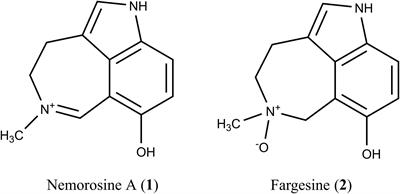EDITORIAL
Published on 31 May 2022
Editorial: Opportunities and Challenges for Drug Discovery From Natural Products in Pharmacotherapy of Neurological Disorders
doi 10.3389/fnins.2022.936981
- 1,308 views
6,641
Total downloads
22k
Total views and downloads
EDITORIAL
Published on 31 May 2022
ORIGINAL RESEARCH
Published on 16 May 2022

ORIGINAL RESEARCH
Published on 14 Mar 2022

STUDY PROTOCOL
Published on 08 Mar 2022

ORIGINAL RESEARCH
Published on 13 Dec 2021

ORIGINAL RESEARCH
Published on 14 Oct 2021

